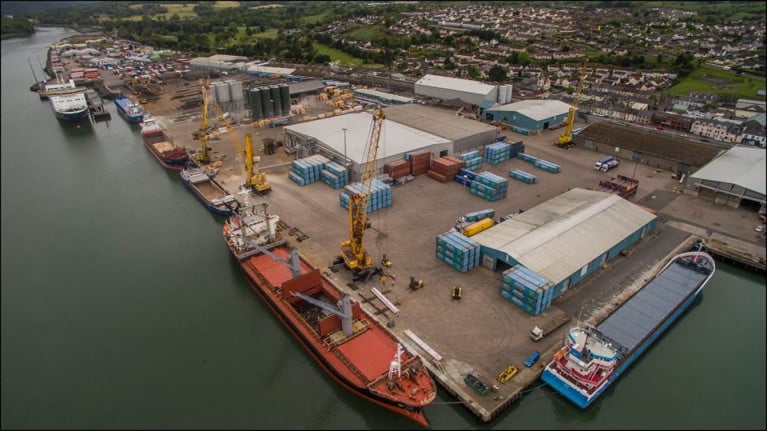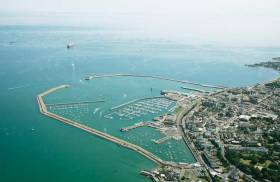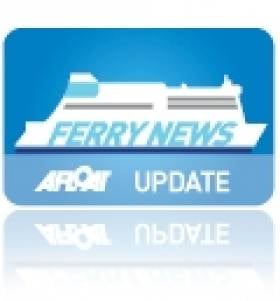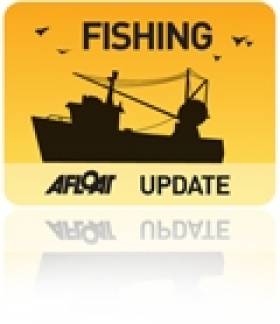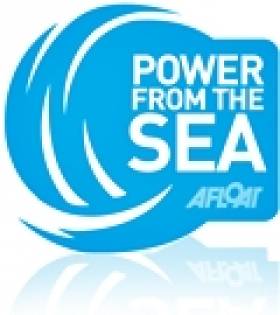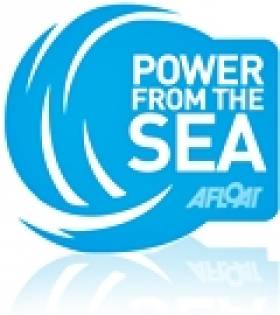Displaying items by tag: infrastructure
According to Manx Radio, the ferry timetable for passengers using the new Liverpool terminal to serve the Douglas route is expected soon.
Due to an improvement in better weather conditions, work on the new Merseyside passenger reception buildings are pointing towards completion of the ferry terminal project.
The new ferry facility for the Isle of Man Steam Packet as Afloat previously reported, is being built by the UK arm of John Sisk & Co, the Irish building contractor.
Since the project began to build the terminal upriver from the existing Liverpool Landing Stage terminal, there have been a number of Manx Infrastructure Ministers.
The current minister, Chris Thomas has overall responsibility for the scheme which has gone considerably over budget.
In the House of Keys, the lower house of Tynwald (Manx Parliament), the minister was asked about the expected final costs, but Mr Thomas says it's too early to say.
To read more and to listen to his comments, click here to the audio links.
Warrenpoint Harbour Authority Allocated £1.5m for Infrastructure
Warrenpoint Harbour Authority has been allocated £1.5m by Nichola Mallon, Northern Ireland's Minister for Infrastructure.
The funding will allow the Co.Down authority to take forward a programme of port infrastructure works.
Minister Mallon said: “The Harbour Authority has identified a range of infrastructure works required at the port as a result of the challenges arising from the Covid-19 pandemic.
This funding will therefore provide vital support following a difficult year for the port, and will enable it to work towards economic recovery as we emerge from the Covid-19 pandemic.
I am pleased to be able to support Warrenpoint Harbour Authority with this bid and to provide support as the port adapts to the requirements of future business needs.”
David Holmes, CEO, Warrenpoint Port said, “We have been working closely with DfI, and our local representatives in relation to our Brexit and Covid response. We are pleased to confirm this award. We see it as a measure of the Department’s confidence in and commitment to the Port.
“The last 12 months have been challenging for all sectors. We would like to thank our team in particular, for their unstinting support in their role as key workers throughout the pandemic. We look forward to progressing the opportunities that we are working on in 2021. Please all do stay safe during these continuing difficult times.”
Brexit means physical checks are required on certain goods entering the UK from the EU.
New Infrastructure Fund Could Rekindle Ambitions For Dun Laoghaire As National Watersport Hub
Ambitions for a National Watersport Centre in Dun Laoghaire could be revived following the launch of a new State fund supporting infrastructure for multi-sports projects.
Applications are now being invited for the the Large Scale Sport Infrastructure Fund, launched by Ministers Shane Ross and Brendan Griffin this week.
The scheme is initially open to applications from national governing bodies (NGBs) and local authorities (LAs) and will consist of two streams.
Stream one, which is aimed at smaller NGBs and LAs, will help fund the development of proposals to tender stage. Stream two will assist applicants to bring projects from tender stage to completion.
The scheme encourages multi-functional sports facilities that will serve more than one sport — which is in line with previous proposals to make Dun Laoghaire a national hub for sailing, kayaking, rowing and more.
Sharing between sports, NGBs and LAs is encouraged and such projects will be viewed more favourably by the fund. The scheme will also require a minimum contribution of 30% from applicants toward the cost of any works/design.
The new fund is separate and distinct from the Department of Transport, Tourism and Sport’s long-running Sports Capital Programme (SCP), which is focused on smaller capital projects where the maximum grant is €150,000.
The full terms and conditions of the Large Scale Sport Infrastructure Fund and application forms can be found HERE.
#FERRY NEWS - A cross-border project to develop ferry services for island and remote communities of the Irish and Scottish coastlines has received funding in the sixth round of the European Regional Development Fund (EDRF).
A grant of £450,000 (€540,000) has been allocated to procure the world's first ever hybrid RORO ferry for operation in Scotland, following the completion of the INTERREG funded Small Ferries Project.
The project - a cross-border partnership between Caledonian Maritime Assets Limited and administrations in Ireland and Northern Ireland - produced common designs and procurement strategies for a fleet of small ferries which could be used to serve remote coastal communities.
As previously reported on Afloat.ie, five Scottish coastal routes (and three Irish routes) were examined as part of the Small Ferries Project report published in September last year.
Arising from this, Scotland will see the next step in the project by hosting the world’s first hybrid RORO ferry, designed for use on short crossing routes around the Clyde esturary and Hebrides.
The EDRF funding will also be used to develop the corresponding shore infrastructure to enable the ferry to recharge in port.
The first vessel is expected to enter service in Spring 2013.
Europe's Largest Organic Fish Farm Proposed for Aran Islands
#FISHING - Bord Iascaigh Mhara (BIM) has begun the consultation process for a proposed new deep-sea fish farm in the Aran Islands, The Irish Times reports.
The 15,000-tonne organic salmon farm would be located off Inis Oírr on a 500-hectare site in Galway Bay, and would be one of the largest of its kind in Europe.
Approval of the project could see the creation of 350 direct and 150 indirect jobs, says BIM. It will be owned by the body on behalf of the State but leased to operators on a franchise basis.
The scheme has been welcomed by Comhar Caomhán Inis Oírr, but the island co-op said it was important that a promised €8-million pier for the island is constructed first to provide the necessary infrastructure.
The Irish Times has more on the story HERE.
New Scheme to Measure Noise Pollution from Wave Energy
#POWER FROM THE SEA - The Sustainable Energy Authority of Ireland (SEAI) is teaming with IBM in a new project to assess the noise levels of wave energy devices off the Irish coast.
The scheme will see an array of noise sensing equipment such as hydrophones deployed in Galway Bay to monitor the noise levels of wave energy conversion devices in real time, as well as map patterns of marine life in the area.
According to AOL Energy, noise pollution at sea is a chief concern, having a disturbing effect on fish migrations among other marine ecosystems.
The west of Ireland will prove an important case study in this regard, as it hosts one of the world's largest wave energy infrastructures.
"Underwater noise is a global environmental issue that has to be addressed if we are going to take advantage of the huge potential of ocean energy," said EU Commissioner for Research, Innovation and Science, Maire Geoghegan-Quinn.
AOL Energy has more on the story HERE.
Ireland Risks Missing Out On Renewable Energy Benefits
Ireland must do more to develop its port and shipping services or risk missing out on the benefits of the growning renewable energy sector.
That was the message from a new analysis compiled by the Sustainable Energy Authority of Ireland and the Irish Maritime Development Office, as reported by Renewable Energy Magazine.
The current lack of supply services and equipment for renewables in Irish ports could threaten the country's promise in the fields of offshore wind, tidal and wave energy, the report states.
It is estimated that the total value of such renewable energy sectors could be as much as €16 billion.
The east coast has been identified as the best location for offshore wind and tidal projects, while the south and west coasts were best for wave power and wind farms.
“We now need to look at the investment in infrastructure required if we are to properly capitalise on the current opportunities in this area," said the report.
Renewable Energy Magazine has more on the story HERE.


























